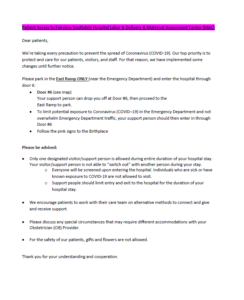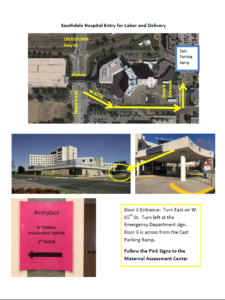Cervical Cancer Screening Guidelines by Dr. Pettit
July 21, 2019Pain Management Options in Labor and Delivery by Dr. Hanno
October 29, 2019Ectopic Pregnancy by Dr. Hanno
Ectopic pregnancy is a medically urgent situation in early pregnancy, where the pregnancy implants outside the uterus. This most often occurs within a fallopian tube. In rare cases, ectopic pregnancies can attach to an ovary or another organ in the pelvis/abdomen. Ectopic pregnancy can lead to a life-threatening emergency if it grows to the point of rupturing and causing internal bleeding
Symptoms of ectopic pregnancy most often include spotting/vaginal bleeding in early pregnancy, with or without pelvic/abdominal pain. Note that there are other potential causes of spotting/bleeding in early pregnancy – sometimes bleeding in early pregnancy occurs without obvious cause in an otherwise normal pregnancy, and bleeding can also be a sign of miscarriage. Symptoms of a ruptured ectopic pregnancy can include severe abdominal pain, a feeling of weakness/dizziness, and fainting. These symptoms would signify an emergent situation is likely requiring surgery. However, some women with ectopic pregnancy never experience severe pain.
Definitive diagnosis of ectopic pregnancy can initially be challenging. It is not uncommon for women to experience spotting/bleeding in early pregnancy. When this occurs, it is your provider’s role to determine whether this is due to ectopic pregnancy, miscarriage, or unexplained bleeding in an otherwise healthy pregnancy. Your provider will likely use a combination of taking a detailed history, blood tests, and ultrasound to make the diagnosis. Sometimes a series of blood tests and ultrasounds are required to make a final diagnosis.
Treatment options for ectopic pregnancy include medication (Methotrexate) and surgery (which sometimes involves leaving the affected tube in place, and sometimes requires removal of the affected tube). The option that is most optimal and safe for you will be determined based on the clinical situation at hand.
Risk factors for ectopic pregnancy include but are not limited to:
- prior history of pelvic infection such as “pelvic inflammatory disease (PID)”
- prior history of certain sexually transmitted infections
- prior ectopic pregnancy
- prior surgery involving the fallopian tubes (such as tubal sterilization) or the pelvic organs
- endometriosis
- infertility
- smoking
- increased age
- in the rare case that a pregnancy occurs with an IUD contraceptive device in place, there is a higher risk of that pregnancy being an ectopic
Note that, in general, these risk factors mostly are situations that cause the fallopian tubes to become abnormal in some way. Remember that if you experience spotting or vaginal bleeding during pregnancy, it is important to notify your obstetric provider.


